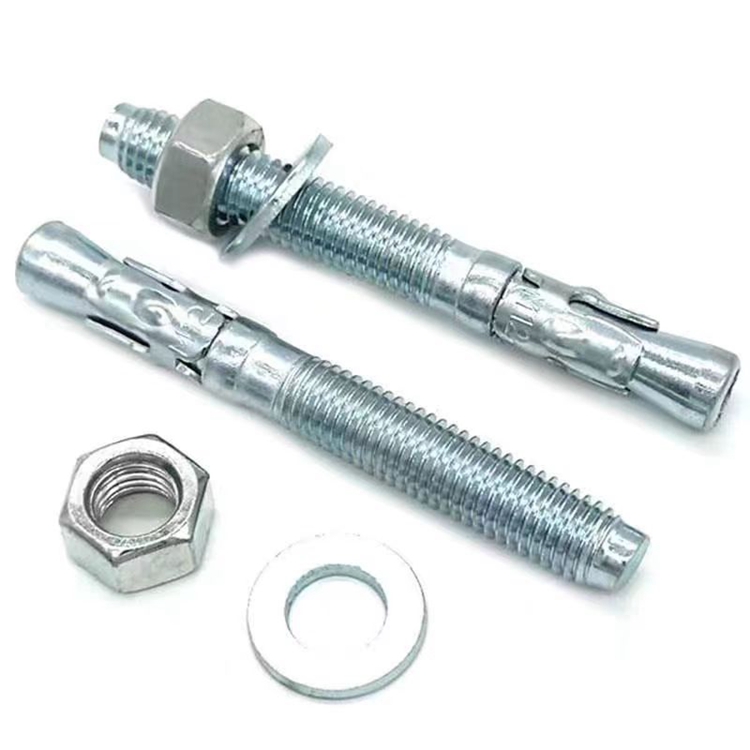High Quality A325 Stud Bolts Manufacturer with Reliable Production and Custom Solutions for Your Needs
Ağu . 07, 2024 18:35 Back to list
High Quality A325 Stud Bolts Manufacturer with Reliable Production and Custom Solutions for Your Needs
Understanding A325 Stud Bolt Factories Quality and Standards
In the industrial sector, the importance of robust and reliable fastening solutions cannot be overstated. One of the most common types of fasteners used in heavy-duty applications is the A325 stud bolt. These fasteners play a crucial role in structural integrity, especially in construction and heavy machinery. A325 stud bolt factories are essential players in this market, producing high-quality bolts that meet stringent standards.
What is an A325 Stud Bolt?
The A325 stud bolt is defined by the American Society for Testing and Materials (ASTM) specifications. It is typically used in structural applications, such as steel construction, where strong and durable connections are imperative. The designation ‘A325’ indicates that the bolt is made from medium carbon steel, which is heat-treated to achieve a minimum tensile strength of 120,000 psi. This makes A325 stud bolts suitable for high-load environments where safety and security are paramount.
The Manufacturing Process
The manufacturing of A325 stud bolts involves several intricate steps to ensure quality and compliance with industry standards. Key steps in this process include
1. Material Selection The journey begins with selecting high-quality medium carbon steel, which forms the basis of the A325 stud bolt. Factories often rely on trusted suppliers to procure materials that meet rigorous specifications.
2. Forging The steel is then heated and forged into the desired shapes. This process increases the strength of the material and enhances its ductility, ensuring the final product can withstand significant stress.
a325 stud bolt factory

3. Machining After forging, the bolts undergo precise machining. This involves cutting threads and shaping the heads, which is critical for the bolt’s functionality. Precise dimensions ensure that the bolts will fit perfectly into their corresponding nuts and assemblies.
4. Heat Treatment Following machining, the bolts are subjected to heat treatment processes, such as hardening and tempering. This step is vital to achieve the required tensile strength and hardness needed for A325 specifications.
5. Coating To enhance corrosion resistance, particularly for outdoor applications, A325 stud bolts may receive protective coatings such as hot-dip galvanizing or plating. This is essential for extending the service life of the bolts, especially in harsh environments.
6. Quality Control Quality assurance is an ongoing process throughout manufacturing. Factories employ various testing methods, including tensile tests, yield strength tests, and dimensional inspections, to ensure that every bolt produced meets the A325 standards.
Importance of Compliance
Manufacturers of A325 stud bolts understand the critical nature of compliance with industry standards. Structures reliant on these fasteners often bear heavy loads and face environmental challenges. Any failure in the bolt can lead to catastrophic results, including structural collapse. Thus, factories must not only meet ASTM specifications but also adhere to additional regulations, such as ISO certifications, to maintain their reputation and ensure the safety of their products.
Conclusion
A325 stud bolt factories play a pivotal role in the infrastructure and industrial sectors by providing critical fasteners that ensure the safety and integrity of various structures. Through rigorous manufacturing processes and adherence to strict quality standards, these factories contribute significantly to the reliability of construction projects worldwide. As industries continue to evolve and demand higher-performance materials, the role of A325 stud bolt factories will undoubtedly become even more crucial in ensuring a safe and robust built environment.
Latest news
-
Premium Phosphated Drywall Screws Supplier | Durable, Rust-Resistant
NewsAug.27,2025
-
Reliable Wire Bolts Suppliers | Quality Zinc Plated Fasteners
NewsAug.26,2025
-
Wire Bolts Suppliers: Durable & Reliable Fasteners for Every Project
NewsAug.25,2025
-
Premium Cabinet Bolts Supplier | Wholesale & Custom Solutions
NewsAug.24,2025
-
Reliable Axle Nuts Supplier | Quality & Precision Fasteners
NewsAug.23,2025
-
Durable Bolts for Lawn Mower Handle - Top Supplier & Manufacturer
NewsAug.22,2025
